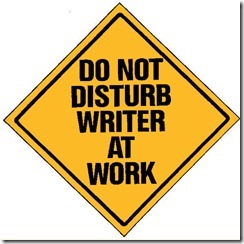Last week, Teleread posted a write-up on a story making the rounds about novelist Jonathan Franzen. Franzen was complaining about the growing push toward authors participating in, or outright handling directly, their own publicity and social media. From the article:
“Franzen claimed on BBC Radio 4′s Today program that young American writers were feeling ‘absolutely coerced into this constant self-promotion’ by agents who insisted that they spend their time upping their Twitter follower count rather than developing their craft. Franzen also complained that the same young writers were missing out on lost opportunities to earn freelance bucks as social media steals away those formerly lucrative niches, and that the book trade was facing ‘really the demolition of the brick and mortar book business by Amazon.’”
The comments our readers posted on this article were thoughtful, reflective and respectful and I enjoyed reading them a lot. Yes, it IS true that the landscape has changed for authors. They do have to perform tasks that once might have been done by someone else, and no longer can a reclusive author with no self-promotion skills turn out a masterpiece and expect it to get noticed. Authors who are in this to have a job do have to multitask more than they used to. I’m not saying that’s a bad thing or a good thing; it simply IS.
But I do think that what often gets lost in these discussions is the differentiation between writing as a hobby and writing as a career. The reality is, writing as a career does require these skills now, for better or worse. Does it mean you can’t ‘be a writer’ if you don’t have them? Of course not. What you can do is grow your writing career as a sideline first. Focus on ‘just the writing’ and hone your skills, outsource the social media stuff to a freelancer once you can afford to, and keep plugging away at your day job until you have enough money to quit. Some people might never reach that stage. They might be happy to just keep it a side project. Personally, I fall into this category. I do get paid for most of my writing, but not enough to live on. I know what I would have to do to get it to that point, and I am simply not interested. I would rather focus on my areas of strength, and let whatever money be a bonus, not a livelihood.
I know others who have made different decisions. My cousin is a professional musician. He is now at a point where he plays and tours most of the time, but it wasn’t always that way. When he first started out, he did a lot more teaching, both at schools and in private lessons. Over time, as he got more of a profile, honed his skills, and promoted himself more effectively, the ratio of teaching gigs versus playing gigs shifted. He didn’t just wake up and say ‘now, I am a pro musician’ and so be it. And he did not wake up one morning with all the skills he needed, either. He developed those skills over time.
I don’t know of any career that allows its true professionals the luxury of doing only the parts they like. As a teacher, I spend more time than I might prefer on the playground, supervising in the lunchroom, helping kids in the bathroom and doing other non-teaching tasks. It’s part of the job. The Beloved, an IT man whose passion is graphics work, has to balance his preferred job tasks with a host of less-preferred ones, some of which get sent to his phone for him to look at during personal time. Job tasks get refined, redefined, reallocated and shuffled around all the time. That’s part of having a career.
Yes, there is more a writer has to do these days—IF they want to be a professional and have it be their bread and butter. But there are also more options now. You don’t have to go through a publisher anymore. You have the option to do the work yourself, but reap the profit yourself too. If all a person wants to do is write, they can begin as a hobbyist and see where it takes them. But if someone truly wants to earn a living and have it be a career, I don’t think it’s unreasonable to expect those people to treat it like any other career. Careers are multifaceted. They have skills you may excel at naturally and skills you may have to learn on the job or through training. They have tasks you enjoy, and tasks you enjoy less, but still have to make time for. They have that training period where you make little money and pay your dues, and then—if you are any good—the growth period where things get better. Writing, as a hobby, may be about just writing what you want. But writing as a true career, is not a special snowflake that is exempt from all the rules of business.

































What you have written is exactly what I wanted to comment on that previous article but decided not to get into it.
Any career occupation has job requirements that stray from your main core talent/skill. One person commented that as a software engineer, they would be lost doing marketing. While as a software engineer myself, I would have loved to be able to design and implement systems all day long – but my job also included mining requirements and writing requirement documents, performing code reviews, writing use cases, testing and debugging software, writing system documentation, figuring out legacy code and deciding what could be reused and what had to be rewritten, dealing with customers when customer support couldn’t sufficiently address technical issues, installing operating systems on virtual machines in multiple languages for testing purposes, even some hardware work. All of these tasks took time away from doing what I was most valued for, but at anything but the largest companies, it is impractical to hire someone else to do every tedious activity that comes up during the development cycle. This is just life. If you want to work doing the things you love, you also have to agree to do the busy work that just needs to get done in order for the product to be successful.
All the whining sounded a bit to me like people who want to get paid for doing what they love to do without having to do any other kind of work or anything they find distasteful. Well, that is pretty much life. No matter how much you may love the core elements of your job, if you want to actually be successful, you have to do some of the busy work too.
@VondaZ. I’ve had to do all the the laundry list of tasks you mentioned at one time or another as a software engineer and will probably do so again. It’s all within scope of the job. But it would be out of scope for me to attend an offsite sales meeting and dun potential customers to buy buy buy. Sales and marketing are specialty skills as is programming. Maybe some people will be good at both, but odds are the specialist will be better. If you had a brain tumor who’d you want to crack open your skull: a) GP b) brain surgeon?
When you read a book who do you want writing the words? The consequences aren’t as important as picking the doctor for your brain tumor, of course, but still go with the specialist when you can. If your ailment is minor or your is book trivial, then the GP or authormarketer is fine.
Well said. It’s a job, like any other.
I sometimes wonder if there are good reasons to keep a (part time) day job even when you CAN earn enough to write full time. It gets you out to interact with real people (which is material). There’s a regular income. There’s the safety blanket of knowing that, if everything goes horrible wrong, you have anoother work option.
The laundry list of tasks mentioned by Vonda are all within job scope for a software engineer. But sales and marketing, I think, is out of scope. Those tasks are best left to specialists. Of course, some people might be good at both, buts odd are the specialists will be more skilled and efficient at their jobs. But maybe there is a place for person who will create the software, market the product, balance the GL, answer the phones, go to board meetings, and clean the toilets. That would be a well rounded person indeed — if you can really find one.
If you had a brain tumor, for example, who would you rather have split open your skull: a) the GP or b) the brain surgeon? The same goes to books. Picking an author to read is less serious, of course, but when in doubt, go for the specialist who just writes when you want a good book.